
Revolution. This show was high last fall on our curiosity list, and we here at TV For The Rest of Us stuck it out for the entire year, through its many ups and downs. Part of it was that we are Supernatural fans that felt of devotion to Eric Kripke, but it’s also that the show grabbed our attention in some compelling way, despite the shortcomings of a very uneven first season. Despite everything we are very much on board for season two, and season one gave us plenty to ponder during the summer hiatus.
After the explosive, and most awesome season finale, Nicole, Bookdal, Far Away Eyes, and Alice all got together on Twitter to talk all about it. In looking back at season one, we came up with five basic questions to start the discussion, and we’re sharing that here today in roundtable format. We all had varying opinions about what was done through the twenty episodes, and some suggestions on how Revolution could be improved in season two. Aside from bringing on some high profile writers (Rockne S. O’Bannon, Trey Callaway, and Ben Edlund) and moving production to Austin, Texas, what else can be done for season two?
What in Revolution season one did you like?
Nicole:
There is an immense amount of talent on this show. It is difficult when you are talking about genre television–you might get a couple really good actors and then are pleasantly surprised when others come into their own later on and grow into their parts. Take Star Trek: The Next Generation for example–really the only great actor was Patrick Stewart, but I loved Riker’s haughtiness that he really grew into and Brent Spiner, although he has a proclivity to sail high over the top, it worked incredibly well with Data. Here, we had Elizabeth Mitchell, who proved herself on LOST, Giancarlo Esposito, who was already very loved for Breaking Bad, and Billy Burke, who got all those Twilight fangirls to watch the show. David Lyons was the wildcard, but I think more because they just had never watched him in anything than that his performance was surprising. I loved the way these four carried their scenes. Billy has a few affects that tend to get annoying in long scenes. I think they should keep him the stoic that doesn’t talk much…and let him eat more…but that is just me.
I loved the idea of a female heroine and initially I really wanted Charlie to be the next Buffy. Sadly though, Tracy has not been able to step into the role, she is overshadowed by the sheer talent and experience above her and most episodes I felt she would benefit from about a year off acting to get some intense coaching before trying again.
I feel like for every love I have, I have an equal poo poo of the season…so I guess it comes down to my love for Sebastian Monroe and  the Bass and Miles relationship that I truly love about the show. Right off the bat in the Pilot episode I fell in love with the Bass/Miles dynamic. It took Eric half a season to realize the full impact, and I think our initial reaction at the mid season break with him talking about “course correct” was right, but I think that whole idea of certain scenes he really wanted to play out had to happen and he needed us all to think Monroe was evil for it to work. Also he realized that Monroe was getting more sympathy than Miles, and although he wanted his characters grey, he didn’t want people preferring the “bad guy” to his “hero”. Billy and David are great together. Their chemistry has a much more grown up feel to it than that of Supernatural’s Jensen and Jared – and I know I might anger some by saying this – but I think their relationship has a lot more range than Jared and Jensen’s.
the Bass and Miles relationship that I truly love about the show. Right off the bat in the Pilot episode I fell in love with the Bass/Miles dynamic. It took Eric half a season to realize the full impact, and I think our initial reaction at the mid season break with him talking about “course correct” was right, but I think that whole idea of certain scenes he really wanted to play out had to happen and he needed us all to think Monroe was evil for it to work. Also he realized that Monroe was getting more sympathy than Miles, and although he wanted his characters grey, he didn’t want people preferring the “bad guy” to his “hero”. Billy and David are great together. Their chemistry has a much more grown up feel to it than that of Supernatural’s Jensen and Jared – and I know I might anger some by saying this – but I think their relationship has a lot more range than Jared and Jensen’s.
Bookdal:
The strongest parts of season one can be described in three categories:
1. Character Relationships and Histories –
a. The Mathesons – As the season unfolded we were made aware of the rather dysfunctional relationships involved in this family, from Ben relying on Charlie to be a mother to Danny to the illicit affair between Miles and Rachel which seems to indicate a paternity question about Charlie. Ben’s and Rachel’s weaknesses as moral characters become evident in the Danny birth storyline and Charlie’s lack of parental guidance is clear in her need to cling to Miles as an authority figure for whom she has affection, even when faced time and again with his war crimes.
b. Neville – His backstory and megalomania infused the perfect type of villain into this story.
c. Monroe – His backstory with Miles provided a foundational relationship to the show, one that was lacking in the first few episodes. It gave a human face to the post-blackout world that Charlie was not able to.
2. Epic plot – While there were weaknesses, I do think the wide scope of Kripke’s vision is intriguing and especially now with the return of the US government/president, it will be interesting to see how the war between the states takes shape. Will a unifying factor such as the government help to stop the wars or will it just aggravate the situation?
3. Scenery/Directing – For the most part the show was beautifully shot and directed and edited. It had a filmic quality that is hard to maintain on a weekly basis. It reminded me of LOST in that way. I hope the move to Texas allows them to continue this trait.
Far Away Eyes:
I enjoyed the concept a lot. Today’s world is so dependent upon all of the devices and electronics we use every day and when the power goes out every time after a storm like Superstorm Sandy it becomes a big deal. I think that’s rather interesting because at the turn of the 20th century there were still many pockets of the US that still didn’t have electricity or indoor plumbing. Even in the 1930s and 40s that was still the case. I think it’s an interesting situation for the world to have to lose all of those “conveniences” and see how that shapes the world after.
I also loved that we had a lot of historical shout outs alluding to the Revolutionary and Civil Wars and how those periods dictated what came after much as this Blackout period could do again. Seeing the country fracture into multiple mini-nation states made for some fascinating story. It really gave us a chance to see what might happen if we did allow the United States to crumble. These questions and concerns should be discussed and sometimes it’s a TV show that has be the vehicle for that.
I liked that Kripke seemed to remember enough of his Supernatural roots to bring in family as being a central theme. It’s why I think Supernatural endures and I think it’s how Revolution can be more than that quirky show about what might happen if we lost all electricity. I liked that we started with Charlie and Danny because they were young, fresh, and innocent largely, but they were just the groundwork as far as I’m concerned for the true sibling story that Revolution should be about: Miles and Monroe.
 Miles and Monroe. I loved their scenes together best. They made the show more emotional and kept me invested the most because I wanted to see just how they ended up where they are right now, hurt and angry with one another, and how they were going to fix that problem and become brothers again. They had a Sam/Dean flavor to them, but were still very much their own characters with their own story to tell and I want to see more of that going forward. I want to see how they can go from being adversaries to allies again. I think it’ll be the best part of the show and the bedrock upon which it can build everything else around it.
Miles and Monroe. I loved their scenes together best. They made the show more emotional and kept me invested the most because I wanted to see just how they ended up where they are right now, hurt and angry with one another, and how they were going to fix that problem and become brothers again. They had a Sam/Dean flavor to them, but were still very much their own characters with their own story to tell and I want to see more of that going forward. I want to see how they can go from being adversaries to allies again. I think it’ll be the best part of the show and the bedrock upon which it can build everything else around it.
Premise for one. They kept the concept simple, the power went out and the world collapsed. It’s fifteen years later, and everything is a mess. The potential was there for some great story telling. I don’t like post-apocalyptic shows myself, but Revolution had enough blend of mysterious back story and current events to keep a viewer engaged. They also introduced some interesting characters with great potential.
The themes of the show are relatable too. Family, loyalty, having each other’s back, fighting and triumphing against all odds. It’s another version of the hero’s journey.
The production on this show was amazing. It felt like a big budget show (perhaps it was). The framing of the scenes, the use of the landscape around them, the visuals, they were all wonderful. This was clearly a technically experienced crew that knew at least visually how to bring a story to life.

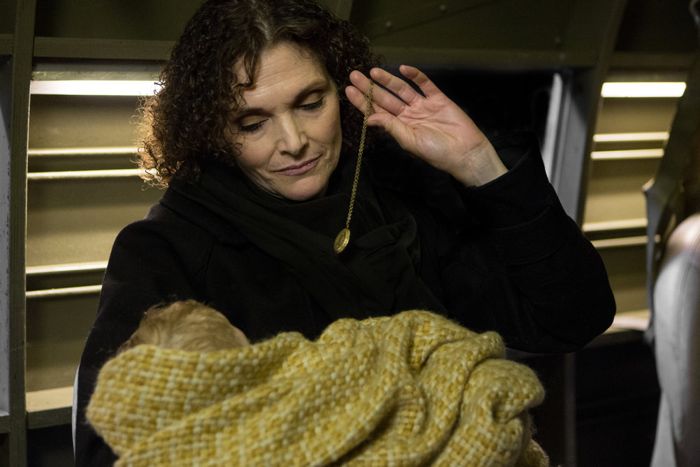
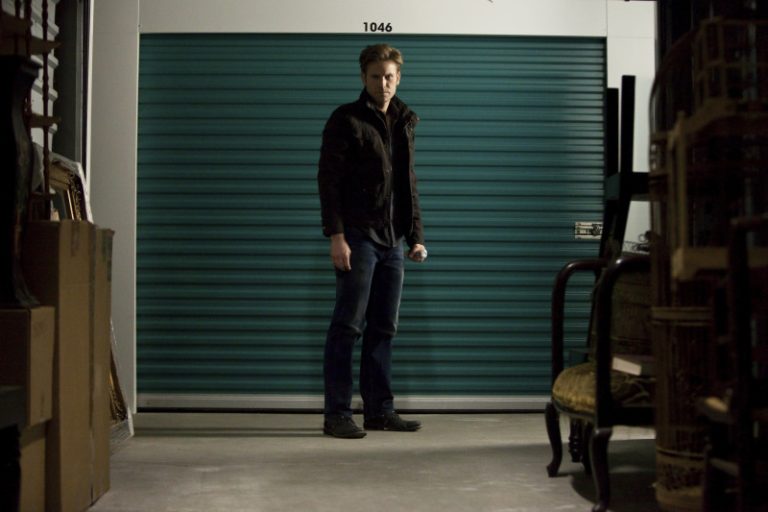
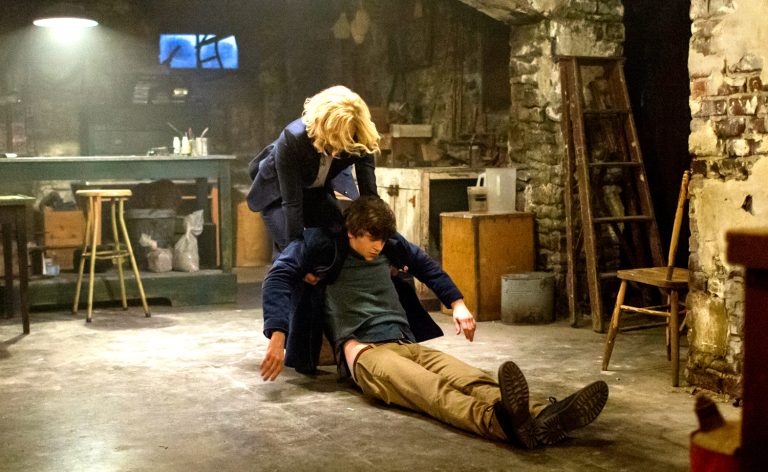
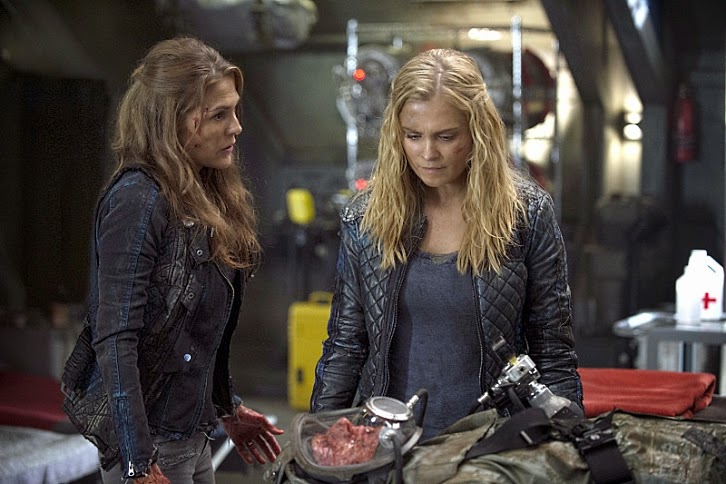
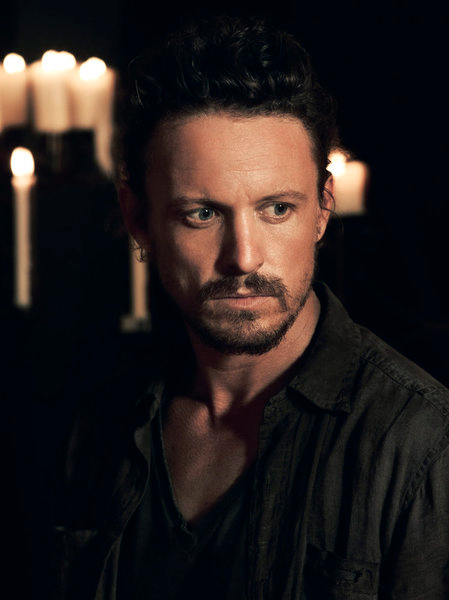
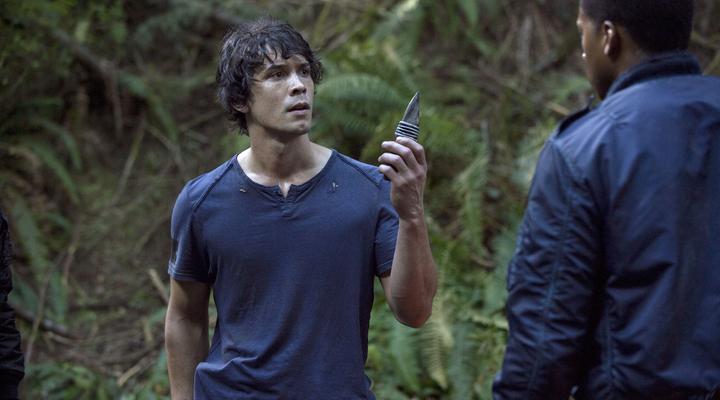
Fun read! For me, I tried so hard to like Revolution, but in the end it just didn’t catch me. I probably feel closest to Alice’s position, although I had the added burden of disliking it when Kripke actually repeated dialogue from Spn in Revolution, especially in Charlie’s mouth. I needed him to figure out what Revolution’s story was and tell that.
As it was, I simply didn’t care for most of the cast, and though I like Miles and Monroe, their relationship doesn’t have the power to make me park myself in front of the TV no matter what.
I cared not one bit when Elizabeth left Charlie to go to the Dark Tower–that relationship is just a dud to me, as is the character of Charlie herself. I agree with the above comment that she has one expression. I was also glad Danny died, which sounds horrible to write, but Supernatural light did not work at all in Revolution.
I thought the story sprawled all over the place, so nothing ended up getting explored well and I never ended up caring in the big climactic moments.
So, probably not back next year, though if I chanced across an episode, I would probably watch it.